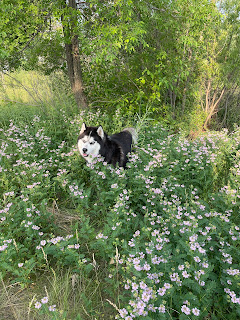Have you ever counted up all the euphemistic, pseudo-inspirational bullshit this society generates around failure? The only failure is never trying. If you don't fail, you aren't trying. Fall down seven, get up eight. I mean. The list is onerous.
No matter all the empty, pithy sayings, I assert that failure gets a bad rap. I know because I'm in the middle of it. It's been four years since I've published a book. It's been four years since I finished a book. A writer not writing. Does that not define failure? It feels like it does. But just because I'm standing in the middle of this vast creative desert, it doesn't mean I've given up. I won't give up until I'm dead. Granted, some days that feels closer than others. But in the meantime, I clock what matters about failure.
1.Failure is inevitable.
2. Failure teaches.
3. Failure is temporary if you want it to be.
To handle failure, you need to know what it is. Define it. What does it look like? What does it feel like? What does it say? What does it smell like? Taste like? Is it a bad review? Those are guaranteed. Is it writing and never being traditionally published? In this market, that is a very real risk. What's your back up plan? Also, why are you writing in the first place? If it's to get published, you've put your power and happiness into something you cannot control.
Recognize that failure of some kind visits us all. If you define that hell before you catch sight of it, you can develop plans to help dodge it before you get stuck in it.
If and when failure comes knocking, look for what that failure has to teach. No one ever learned anything useful and long-lasting from success. Our mistakes are our teachers when we don't get bogged down in emotion about them. Maybe I took on a story that exceeded my skill, and I failed to stick the landing. The critics hate me, and the book isn't selling. Yet i gained incredible new skills for having dared to try this hard thing. So it's not perfect. The next book will be the better for it, and I now have a set of skills no one can ever take from me.
Failure doesn't have to be a destination. It can be a place you pass through. It feels like you'll die there, trust me. Occasionally, I guarantee you'll wish you could, just so you can stop trying and just rest. The path through failure includes a lot of flailing, a lot of crying for help, and a lot of looking outside yourself for answers to the 'what's wrong with me' question. The hard truth, though, is that the only route out of failure starts inside you. It starts with determination and the refusal to wander off into the sunset never to be heard from again. It means adapting. Developing new ways to work when the old ways either aren't available or no longer work.
I don't mean to imply that help isn't available and shouldn't be sought. I will be the very first advocate for addressing mental health issues immediately. That is, in fact, a prerequisite. But barring the need for medical diagnosis, you aren't likely to find one class or one guru or one quick trick that's going to rocket you out of failure. Classes can be valuable tools. Writing groups, too. They're good supports to lean upon along the way while you're clawing word by word out of a failure state. But they cannot take the place of the work required of you for you.
No one wants to fail. No one thinks it will happen to them. No one wants to have to sit down with their already over-active imagination and mentally play through worst-case scenarios and then come up with plans A and B to address those worst case scenarios. Trust someone who didn't and ended up mired in failsville for too long. Your stay in failure will be much, much shorter if you come into it with a roadmap for getting back out.



























.jpg)